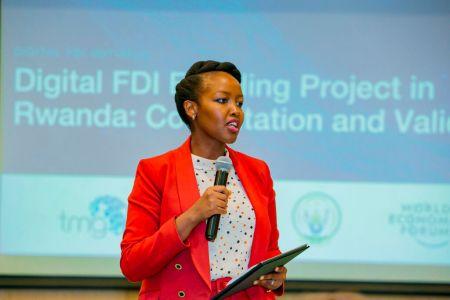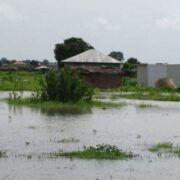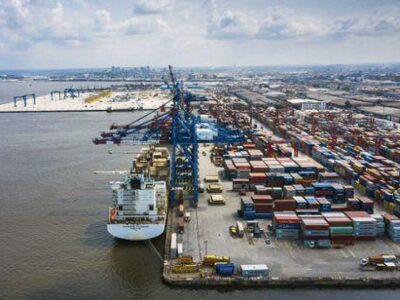
(Ecofin Agency) – Digital technology is now at the heart of many development challenges across Africa. Several ambitious projects aim to boost millions of people’s economic and social growth. However, challenges remain depending on the country.
Between 2013 and 2023, Rwanda attracted $819 million in foreign direct investments (FDI) in the digital sector, distributed across four key sub-sectors. Software and IT services took the largest share with $372 million (45% of the total), followed by communications at $304 million (37%). The electronics sector received $77 million, while machinery and business equipment accounted for $66 million.
FDI represents long-term investments made by a company in one country into a business in another country. Unlike stock market purchases, FDI involves active participation in managing and developing the foreign business through local, value-added projects.

Source: World Economic Forum and Digital Cooperation Organization, 2025
Over the next decade, Rwanda plans to attract even more digital FDI than it did in the past ten years. This ambition is supported by the Digital Foreign Direct Investment (DFDI) initiative, launched in 2022 by the Digital Cooperation Organization (DCO) and the World Economic Forum (WEF). Rwanda was the second country to join the initiative, which has helped the government identify challenges to overcome. These challenges are detailed in the report titled “Digital FDI Initiative: Digital FDI-Enabling Project in Rwanda,” published on January 3, 2025, by the DCO and WEF.
Internet connectivity and high-speed telecom infrastructure remain significant challenges, especially in rural areas where access to the internet is still limited. According to Data Reportal, internet penetration in Rwanda was just 34.4% as of January 2024. Other hurdles include a lack of skilled professionals to meet growing digital demands, regional competition, limited access to capital, and insufficient support for startups and early-stage businesses.
The report also highlights the need to strengthen cybersecurity and data protection, which are critical to building foreign investors’ trust in an increasingly digital world.

Source: World Economic Forum and Digital Cooperation Organization, 2025
Under its Vision 2050, launched in 2020, Rwanda aims to become an upper-middle-income country by 2035, with a GDP per capita exceeding $4,036. By 2050, it plans to achieve high-income status with a GDP per capita surpassing $12,476. Digital transformation plays a vital role in achieving these goals.
Despite its challenges, Rwanda has developed a favorable digital environment over time. The DCO and WEF note that Rwanda has strong legal and policy frameworks to support the digital sector, including Law No. 006/2021, which promotes and facilitates investment. The law features no restrictions on foreign ownership or control and prioritizes investments in sectors like information and communication.
However, having strong policies alone is not enough. Rwanda aims to address persistent obstacles through the DFDI initiative to position itself as a leading destination for tech investors and a regional digital hub. Currently, this role is dominated by Kenya, which attracted $1.1 billion in digital FDI in 2023.










Comments